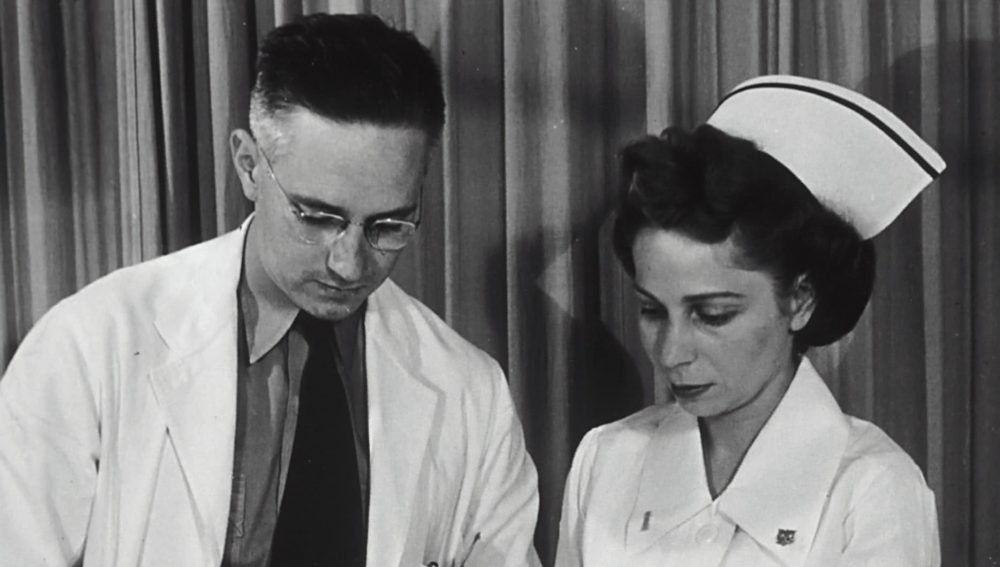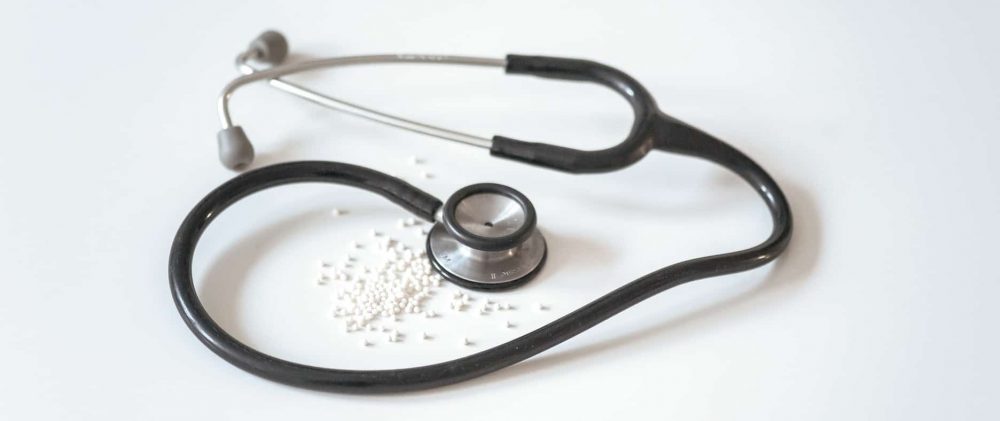Elhaam Avini is a Final Year Medical Student at King’s College London and has a keen interest in Medical Education.
Qabass Omran is a Final Year Medical Student at King’s College London.
Fatemazahra Mohamed is a Medical Student at King’s College London, currently intercalating at the London School of Hygiene & Tropical Medicine and the London School of Economics.
Zara Ahmed is a Fourth Year Medical Student at King’s College London.
“Are you sure you can handle it?”
“You’re quite bossy, you’d fit right in.”
“When will you have time for kids?”
“Oh, your partner wants to become a surgeon? Great news for you!”
“Nurse, can you get the doctor for me?”
“It’s good you’re making the sacrifice to become a General Practitioner now – means more time for your family!
As female medical students it is difficult to ignore the detrimental impact of such comments on our self-confidence and career considerations. Throughout medical school we’ve experienced and observed obvious gender disparities – during clinical placement encounters, discussions with medical professionals, and casual career talks with peers.
During clinical placements, we noticed differences in gender representation in certain specialities. One was Trauma & Orthopaedics (T&O). During morning handover our curiosity was piqued when we witnessed the dynamic between male and female doctors. Male doctors demonstrated their clinical acumen with comfortable confidence, unlike their outnumbered female colleagues. We noticed the latter would often shy away from voicing their opinions and looked more anxious when questioned by senior colleagues. When handover had finished and we had the opportunity to strike up a conversation we were disheartened by the similarity between our speculations and the female junior doctors’ thoughts. There was no hint of dislike towards T&O itself – far from it. However, they admitted the atmosphere precipitated by gender dynamics had made their experience less enjoyable. They mentioned how not having many female consultants around also dissuaded them from confidently feeling part of the team.
It seemed that problems weren’t just arising from the immediate team. During multiple encounters with other healthcare professionals, assumptions were made that they couldn’t be T&O doctors because of their ‘frail’ physique, since T&O was ‘manually arduous’. These opinions weren’t just confined to T&O. One female Intensive Care doctor we spoke to said she started Specialty Training in T&O, but later changed her mind because of the gender dynamics she experienced. In 2017, NHS workforce gender statistics showed an overall majority of male surgeons (73%) in comparison to female surgeons (27%), which generates a concept of male-dominant specialities.1 The gender divide within each surgical sub-speciality was also highlighted. T&O had the lowest percentage of female surgeons (17%), followed closely by Neurosurgery (18%), and Cardiothoracic Surgery (CTS) (18%). In a recent study collating responses from 81 surgical professionals, 53% regarded T&O a sexist speciality.2 16% and 15% selected CTS and General Surgery respectively as sexist specialities, with 15% believing no surgical speciality was sexist. 88% of respondents perceived Surgery as a male-dominated field.
Patients would assume our male peer was the doctor and we the nurse.
We also experienced gender disparities when clerking patients alongside our male medical student peers. Occasionally, patients would unwittingly assume our male peer was the doctor and we the nurse. When we opened up this discussion with other female medical students it became clear that this was a recurring issue. Assigning gender to professional roles not only contributes to gender-stereotyping, but also undermines the significant value of nursing staff. Dr. Maria Irene Bellini, a Renal Transplant surgeon, voiced her opinions on the damaging nature of gender-stereotyping within Medicine. She said, “You feel like you have to fight not only against the institution for the way [it is] organised [to] favour men, but also some patients that don’t trust females because there is a general perception, dominated by unconscious bias, [that] this is a male-dominated field and a man’s profession.”3
Finding a suitable speciality is undoubtedly an important part of any medical student’s journey. Multiple factors have influenced our own speciality considerations. From a young age the most influential factors were socio-cultural and family pressures. During casual conversations with family and community members certain specialities were promoted as ‘family-friendly’ and therefore suited to women. These included General Practice (GP), Obstetrics and Gynaecology (OBGYN), and Paediatrics. Boys, however, were discouraged from pursuing these careers, since they apparently didn’t offer the prestige and social standing of surgical specialities. Amongst medical students there is a gender difference in speciality preference, and female students are less likely to consider certain specialities, such as surgery, if they consider them to be hurdles to a rewarding family life.4
When we first started medical school the buzz of excitement was really palpable and many of our female peers aspired to become surgeons in competitive fields. However, as the years passed by many changed their minds. They’d credit this to giving greater value to family time and being less eager to pursue intense specialities if this was compromised. This is a common dichotomy regarding work-life balance, and it feels inevitable that one must be sacrificed. This idea was also noted in a study concluding that women in Medicine were more willing to sacrifice career aspirations for parenthood compared to men.5 Instead, men would be under the assumption that their partners would be primary child-carers, allowing them to fulfil their career aspirations.
Men would be under the assumption that their partners would be primary child-carers, allowing them to fulfil their career aspirations.
In our experience, GP is a varied, thoroughly gratifying and intellectually stimulating profession which promotes impactful patient interactions and long-lasting relationships. Yet unfortunately a much lower number of doctors are becoming GPs than the projected need.6 Many factors play into this, and one can be the some medical students’ perception that Primary Care is of a ‘lower status’ to other specialities.7 During clinical placements, we would often hear remarks from some Consultants about inadequate referral letters made by GPs, or disappointedly questioning the need for one. When we would mention our interest in GP their comments would be swiftly brushed off and replaced by “You can be the good GP!”, which insinuated that most GPs are substandard. Others would initially react underwhelmingly, but then attempt to validate our interest by being overly supportive. It is disheartening, because if GP is truly considered equal to other specialities then an interest would not require validation or overt support.
A bewildering experience for us was during casual talk with some male medical students. Although most have been positive, some occasionally unmasked underlying prejudiced beliefs. We were taken aback by the subtle mockery and disproportionate assumptions they made when we mentioned GP as a potential career. Assumptions included GP only being a consideration because “it’s a relaxed career”, since we “couldn’t handle difficult specialities”, or because we “weren’t ambitious enough”. Despite attempting to engage constructively and highlight the ignorance in their opinions, our peers would eventually conclude that “women considering GP isn’t that bad, since one partner needs to take care of the kids”.
Fricker describes gender power as a form of identity power… dependent on a significant degree of shared imaginative conceptions of social identity.
These opinions aren’t only reductive for the profession, but disrespectful to women considering GP. They strip GP of its well-deserved merit and alienate it from contemplation by labelling it particularly as a career for doctors who wish to have families. Our male peers’ remarks is a practical example of gender power. Fricker describes gender power as a form of identity power, which is a power operation dependent on a significant degree of shared imaginative conceptions of social identity.8 Using identity power, a man can influence a woman’s actions in favour of his opinion without any repercussions, even if he is patronising, as he is a man and she is a woman. Identity power can also be benevolently sexist. We experienced this when our male peers made stereotypical comments about the “emotional range and empathic abilities women innately have”, making us “more suited to specialities like Paediatrics, OBGYN, and GP”. Although these statements may be well meant as they celebrate women, they exacerbate gender-stereotyping by confining women to pre-determined specialities. This is an example of how gender power, benevolent sexism, and dual complimentary / derogatory stereotyping can be present in Medicine.
There are several solutions to help bridge Medicine’s gender gap. An important solution is ensuring a stronger female presence in medical school faculties and acadaemia. Hosting female academic lecturers from statistically male-dominated specialities could help empower fellow female medical students to pursue those careers from an earlier stage. It could also help eradicate any pre-existing stereotypes held by medical. Alongside this, having senior female professionals or supportive male professionals as mentors can help create a strong support foundation for not only female medical students, but all students. Another possibility is to invite more female doctors from male-dominated specialities during career events for medical students.
We believe there are many areas for further gender themed considerations in medicine. When female doctors are repeatedly assumed to be part of a different profession, it makes us reflect. How have these gender based misconceptions originated? Do the media, film and television industries play a detrimental role? It would be interesting to explore what male medical students think of statistically female dominant specialities, such as OBGYN and Paediatrics.1 Did any students originally intend to pursue these specialities, but were deterred because of possible gender dynamics they experienced on placements? What changed the mind of those who previously weren’t considering these specialities because of prior misconceptions but later gained interest during placements?
It’s time we took a collective stand.. to help educate ourselves … as well as those around us, on damaging gender disparities.
We’ve noticed many areas within the medical sphere where female medical professionals and students alike could experience ambivalent sexism – whether it’s encounters with medical professionals, patients, or male peers. With the unfair disdain already catapulted at GPs, these gender-stereotypes and assumptions don’t help. It’s time we took a collective stand as a medical body to help educate ourselves first and foremost, as well as those around us, on damaging gender disparities.
References:
1. NHS Digital. 2018. Analysis of the representation of women across the hospital and community health services workforce. [accessed 2020 Sep 20].
https://digital.nhs.uk/data-and-information/find-data-and-publications/supplementary-information/2018-supplementary-information-files/analysis-of-the-representation-of-women-across-the-hospital-and-community-health-services-workforce
2. Bellini MI, Graham Y, Hayes C, et al. A woman’s place is in theatre: women’s perceptions and experiences of working in surgery from the Association of Surgeons of Great Britain and Ireland women in surgery working group. BMJ Open 2019;9:e024349. DOI: 10.1136/bmjopen-2018-024349
3. Davis N. 2019 Jan 8. Female surgeons frustrated by male-dominated field – study. The Guardian. [accessed 2020 Sep 20].
https://www.theguardian.com/society/2019/jan/08/female-surgeons-frustrated-by-male-dominated-field-study-finds
4. McCord JH, McDonald R, Leverson G, et al. Motivation to pursue surgical subspecialty training: is there a gender difference? J Am Coll Surg 2007;205:698-703.
5. Lempp H, Seale C. Medical students’ perceptions in relation to ethnicity and gender: a qualitative study. BMC Med Educ 2006;6:17.
6. Rodriguez-Santana I, Chalkley M. The socioeconomic and demographic characteristics of United Kingdom junior doctors in training across specialities. Centre for Health Economics [Online]. 2015 [cited 2020 Sep 20]. Available from: https://www.york.ac.uk/media/che/documents/papers/researchpapers/CHERP_119_junior_doctors_training_specialities.pdf
7. Wass V, Gregory S, Petty-Saphon K. By choice – not by chance: Supporting medical students towards future careers in general practice. 2016 Nov [cited 2020 Sep 20]. https://www.hee.nhs.uk/sites/default/files/documents/By%20choice%20-%20not%20by%20chance%20PDF.pdf
8. Fricker M. Epistemic Injustice: Power and the Ethics of Knowing. Oxford University Press. 2007.
Featured photo by National Cancer Institute on Unsplash








